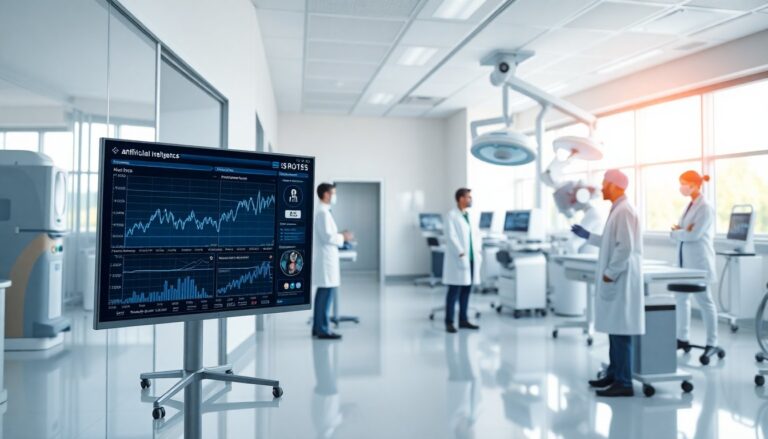Argomenti trattati
The Transformative Impact of Artificial Intelligence in Healthcare
Artificial intelligence (AI) has emerged as a crucial element in the healthcare sector, driving innovations that significantly enhance patient care, streamline operations, and reduce costs. From predictive analytics to robotic surgeries, AI applications in medicine are currently being implemented in hospitals and clinics globally.
Practical Applications of AI in Healthcare
AI technologies are revolutionizing various aspects of healthcare. Below are some notable applications:
- Predictive Analytics:By analyzing large datasets, AI can identify patterns that assist in predicting patient outcomes. This enables healthcare providers to intervene earlier and tailor treatment plans effectively.
- Diagnostic Assistance:AI algorithms aid radiologists by interpreting medical images more accurately and swiftly than human eyes alone, thus improving diagnostic accuracy.
- Personalized Medicine:AI analyzes genetic information to create individualized treatment plans, ensuring therapies are more effective based on a patient’s unique genetic makeup.
- Robotic Surgeries:Surgical robots equipped with AI enhance precision during operations, leading to shorter recovery times and reduced risks of complications.
Real-World Success Stories
Several healthcare institutions have successfully integrated AI into their operations, yielding impressive results:
1. IBM Watson Health
IBM’s Watson has been utilized in oncology to analyze extensive amounts of medical literature and patient data. This assists oncologists in developing personalized treatment plans, with hospitals reporting improved patient outcomes and increased efficiency.
2. Zebra Medical Vision
Zebra Medical Vision has developed AI algorithms that analyze medical imaging data to identify conditions such as pneumonia and cardiovascular diseases. Their technology has been adopted by numerous healthcare providers, leading to earlier detection and treatment of serious conditions.
3. Google DeepMind
DeepMind has made significant strides in detecting eye diseases through AI analysis of retinal scans. Their system has achieved accuracy levels comparable to expert ophthalmologists, demonstrating the potential for AI to enhance diagnostic capabilities.
Conclusion
The integration of artificial intelligence in healthcare is paving the way for a more efficient, accurate, and patient-centered approach to medicine. As AI technologies continue to evolve, their potential to transform the healthcare landscape remains boundless.

